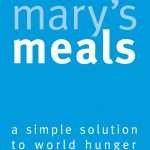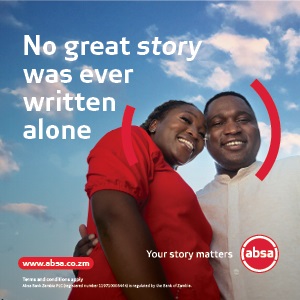
Website Mary's Meals Zambia
FINAL EVALUATION OF THE FCDO PROGRAMME
Improving access, participation, and progression in education for vulnerable children in Eastern Zambia.
UK Aid Match Grant Reference Number II: 205210-229
1. Introduction
Mary’s Meals International seeks a consultant/s to undertake the final evaluation of a three-year school feeding project, funded by FCDO in Zambia. The project began in September 2019 and will end in December 2022. The final programme evaluation is planned to take place during January to February 2023.
2. About the programme
The project objectives are to contribute to improve engagement for children through increased access and participation in primary school, achieving universal inclusive and quality education primary and pre-school education for vulnerable children in Zambia, to reduce classroom hunger, to improve progression within primary schools, improve capacity to manage and deliver school feeding programmes in local, district and national level. The programme was designed to reach a total of 223 schools across Mambwe, Lumezi, Kasenengwa, Chipangali and Chipata districts in Eastern Province in Zambia.
The outcomes of the project are:
- Improved engagement in education for children in Mambwe, Lumezi, Chipata, Chipangali and Kasenengwa districts in Eastern Province, Zambia through increased access and participation in primary education. Contributing to SDG4- Progress towards inclusive and quality education for all and promote lifelong learning.
- 131,114 vulnerable children in Zambia benefit from reduced classroom hunger and improved access, participation and progression within primary education, increasing community support for education and improving capacity to manage and deliver school feeding programmes at local, district and national level.
3. Evaluation purpose
This evaluation will assess the extent to which the original project objectives have been achieved.
The objectives of the evaluation are:
- To assess the extent to which each of the original project objectives have been achieved.
- To provide an assessment of the programme impact.
- To provide learning and practical recommendations with the potential for future adoption and integration within Mary’s Meals’ work.
The evaluation will consider project impacts in relation to the intended outcomes of the project, which are:
- Reduction in classroom hunger
- Improved access, participation, and progression within primary education
- Increased community support for managing and delivering the SFP
- Improved capacity to deliver school feeding programmes at local, district and national level
Throughout the assignment, the evaluator will use indicators that have been defined and implemented by Mary’s Meals, as appropriate for their assessment. The FCDO grant log frame will be provided and should act as a key document and guide for the evaluation.
4. Evaluation Criteria
This evaluation will consider the following specific evaluation criteria:
Impact:
- Were the programme activities implemented as planned?
- Were the planned objectives met?
- What impacts has the programme achieved in the target schools and communities?
- Who has benefited directly and indirectly from the programme? (The evaluation should consider other dimensions of diversity such as gender, age, socio-economic status, ethnicity and disability etc).
- How were beneficiaries and their communities involved in the project?
Sustainability:
- What was the level of involvement and ownership of the programme on the part of target communities? To what extent were the target communities contributing time, money, or other resources to the running of the programme?
- What was the level of involvement and ownership of the programme on the part of government authorities (including ministry officials)? To what extent were these stakeholders contributing time, money, or other resources to the running of the programme?
- What effect has the programme had on the level of knowledge, skills, and capacity within the target communities and government authorities to maintain and manage school feeding programmes?
- What could be appropriate next steps to support the SFP going forward?
- What role does the woodlots play in the sustainability of the programme? To what extent has the woodlot contributed to the SFP fuel source (Where have communities been sourcing wood? To what extent has the trainings and community engagement activities provided the communities and local authorities with the capacity to manage the woodlots?
Efficiency:
- To what extent was the SFP delivered efficiently and cost-effectively?
5. Evaluation methodology
The evaluation will include both desk review and fieldwork components in sampled project Schools. The evaluator will be expected to undertake the following:
Desk review of project documentation and monitoring data for the relevant areas.
Fieldwork with a selection of schools and direct beneficiaries within the project districts. Age-appropriate methods should be used.
Interviews with Mary’s Meals staff, head-teachers, community, and government representatives as appropriate.
Fieldwork should be conducted in a representative sample of schools in the programme districts of Eastern province. Following the data collection and analysis, the consultancy team will be expected to present and discuss the key evaluation findings with project team and stakeholders.
6. Timeline of the Evaluation
The following is a guide to the expected timeline and outputs for the evaluation:
No./ Action / Timeframe
1. Closing date for receipt of evaluation proposals – 11th Nov 2022
2. Selection of consultancy team (evaluators) – 30th Nov 2022
3. Inception Report: Consultancy send proposed evaluation methodology to Mary’s Meal – 12th December 2022
4. Evaluation field research – 9th Jan to 20th Jan 2023
5. Research data shared with Mary’s Meals – 27th Jan 2023
6. Draft of report submitted for review and comment – 3rd Feb 2023
7. Consultants present and discuss research findings with key programme stakeholders – 17th Feb 2023
8. Final Evaluation Report, Executive Summary submitted – 28th Feb 2023
All raw data and information collected during the course of the assignment must be supplied to Mary’s Meals in an agreed format as an output of the assignment.
Evaluation team
Mary’s Meals is looking for an independent evaluator or evaluators who can demonstrate the following experience and competencies:
- Proven experience in the design and implementation of evaluations.
- Skills in the collection, analysis, and management of both quantitative and qualitative data.
- Knowledge of education programmes in general, and ideally school feeding programmes in particular.
- Knowledge of the current development context in Zambia.
- Ability to communicate in relevant local languages, understanding of ethical aspects of research including safeguarding, and ensuring the anonymity and confidentiality of respondents.
The selected consultant(s) will be expected to sign and abide by applicable Mary’s Meals policies.
How to apply
To apply for this assignment, interested consultants should provide the following:
- A proposal for how they would approach the assignment. This must include an outline of the consultant’s proposed methodological approach to the field research component not exceeding 5 pages
- A sample of relevant recent written work: ideally an evaluation report or similar.
- CVs of all consultants who would be involved in the assignment.
- A detailed budget for the evaluation, including daily rates and all expenses or per diems.
Please contact Mary’s Meals for further information on the following numbers +260 760 633 753/+260 977 219 239 and +260 973 778 749
Please send applications to: [email protected] and copy [email protected]
The closing date for the receipt of applications is 11th November 2022.

